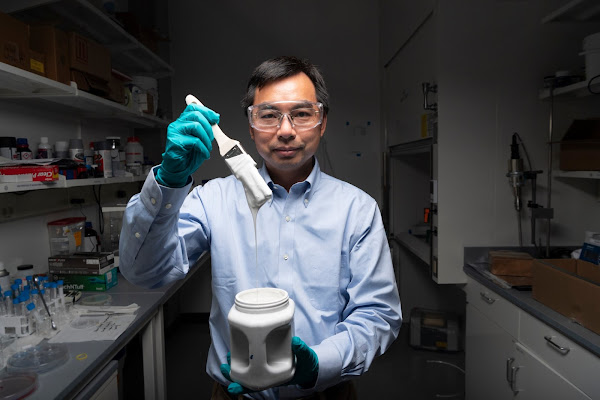In 2020, Dr. Ruan and his team unveiled their creation: a type of white paint that can act as a reflector, bouncing 95 percent of the sun’s rays away from the Earth’s surface, up through the atmosphere and into deep space. A few months later, they announced an even more potent formulation that increased sunlight reflection to 98 percent.
The paint’s properties are almost superheroic. It can make surfaces as much as eight degrees Fahrenheit cooler than ambient air temperatures at midday, and up to 19 degrees cooler at night, reducing temperatures inside buildings and decreasing air-conditioning needs by as much as 40 percent. It is cool to the touch, even under a blazing sun, Dr. Ruan said. Unlike air-conditioners, the paint doesn’t need any energy to work, and it doesn’t warm the outside air.
While humans in such hot and picturesque places as Santorini and the aptly named Casablanca have long used white paint to cool dwellings, and municipalities are increasingly looking to paint rooftops white, Dr. Ruan said commercial white paints generally reflect 80 percent to 90 percent of sunlight. This means they still absorb 10 percent to 20 percent of the heat, which in turn warms surfaces and the ambient air. The Purdue paint, by comparison, absorbs so much less solar heat and radiates so much more heat into deep space that it cools surfaces to below-ambient temperatures.
Cara Buckley
Besides the obvious issue of sourcing large quantities of the ingredients necessary for this ultra-reflective paint, another disadvantage comes to mind: I assume coating buildings in this white paint would cool them all year long, so during colder winter months as well, when buildings draw energy from the sun for passive heating. At least in temperate regions with large temperature swings between summer and winter, this solution might have the adverse effect of requiring more heating in cold weather, thus contributing to climate change by burning more fuels. Unless you somehow change this coating throughout the seasons – with mobile panels perhaps? – but that seems like an unfeasible complication…

Post a Comment